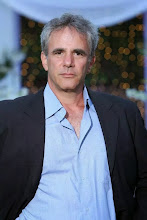In an editorial entitled “Kurdistan’s Dangerous Vote on Independence,” The New York Times expresses its empathy for Kurdish yearnings for independence in Iraq, but fails to note the horrifying oppression of Kurdish minorities living in Turkey, Syria and Iran over the course of many decades. The editorial also forgets to mention that the Middle East's 30 million Kurds comprise the world's largest stateless people, whose identity and rights were not accounted for when Britain and France carved out new Middle East nations with artificial borders after World War I.
The Times editorial tells us:
"Only Israel, with a history of close ties to Kurds and hopes for an ally against Iran, has declared support for a Kurdish state."
However, while Israel would certainly welcome an ally in the region, Israeli sympathy for Kurdish statehood has a historical basis. In the years immediately prior to Israeli independence, the US State Department and Department of Defense opposed granting the Jews their own country for the very same reason: Giving the Jews a homeland could endanger American strategic interests in the region.
Whereas the US has welcomed Kurdish friendship and support while battling ISIS and Saddam Hussein, it is now time for the US to reciprocate by recognizing the right of the Kurds to live in dignity and freedom. Dangerous? Sure, an independent Kurdish state carved out of Iraq is upsetting for the Turks (Kurds amount to some 20 percent of Turkey's population), but all change comes with uncertainty, and the Kurds deserve to live without fear of persecution and oppression.
